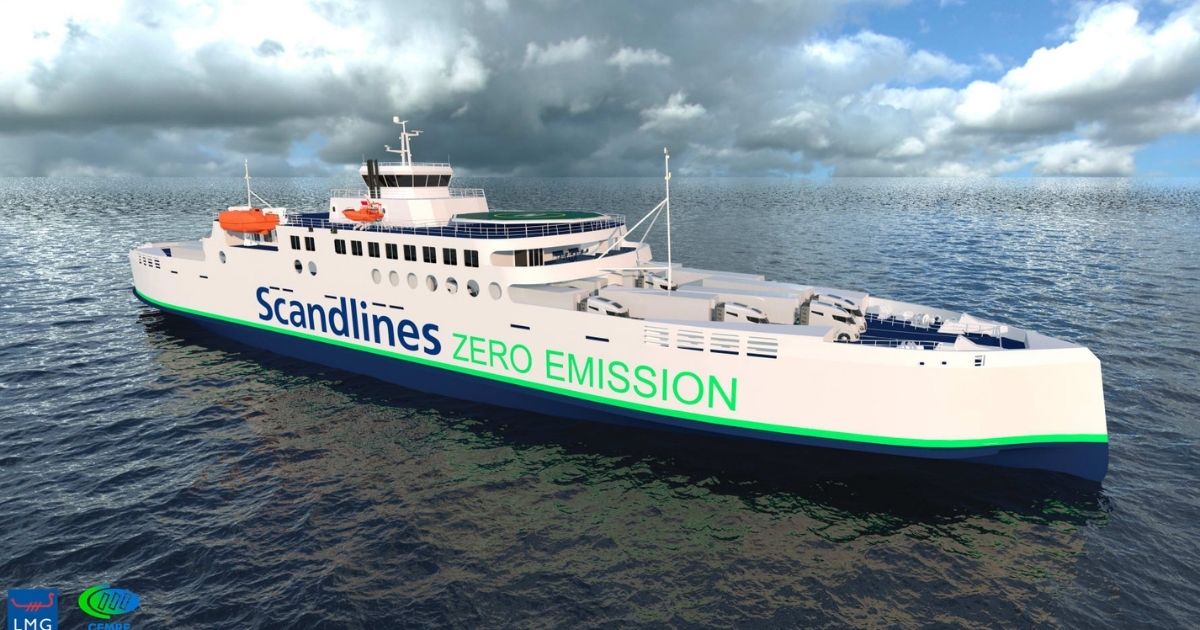Kongsberg Maritime (KM) has just been commissioned to supply a complete propulsion and control system package for a forthcoming Scandlines zero-emissions vessel which, when built, is destined to be the world’s largest all-electric double-ended ferry.
The ferry has been designed by LMG Marin AS in Norway and will be constructed at Cemre Shipyard in Turkey, in close cooperation with Scandline’s vessel-newbuild experts. The new freight ferry is expected to enter service in 2024. As the first of the company’s next-generation vessels, heralding its ambitions to make its operations entirely emission-free, it will represent a momentous step in Scandlines’ green journey.
KONGSBERG has been Scandlines’ main propulsion supplier for over two decades, contributing directly in recent years to the company’s emission-reduction strategy. The new ferry, 147.4 meters in length and designed to carry a maximum of 140 passengers and 66 cargo trucks at a service speed of 16 knots, will be equipped with KONGSBERG’s pulling azimuth thruster; Azipull™. The thruster will be delivered with controllable pitch propellers, in an L-drive configuration with an integrated permanent magnet drive motor. This increases overall energy efficiency while reducing noise and vibrations, as well as reducing the physical footprint of the thruster system compared to previous deliveries.
KONGSBERG will also be supplying its Mcon Propulsion & Thruster control system to control and monitor the ferry’s propulsion and steering, presenting operators with an intuitive human machine interface which will allow them to check important parameters, such as the magnitude & direction of thrust and equipment health, at a glance.
Scandlines’ new freight ferry will be operating on the crossing between Puttgarden, on the German island of Fehmarn, and Rødby in Denmark. With a capacity of 66 freight units (equating to approximately 1,200 lane meters), it will increase freight transportation capabilities on the route by around 23%. Emission-free crossings will be completed in one hour and 10 minutes: the vessel could also be operated as a hybrid ferry, whereby the journey duration would be reduced to 45 minutes.
Updating the infrastructure to support the new electric ferry and its planned successors is already in hand. The 50kV / 25MW power cable which Scandlines laid in Rødby harbour in 2019 is being extended to the ferry berths, where a transformer and charging station will also be installed. In future, it is anticipated that there will be charging facilities for the new ferry in Puttgarden as well, once a suitable solution has been agreed upon for purchasing green electricity. The new freight ferry is being designed so as to fit the existing berths in Rødby and Puttgarden.
“Our ongoing investment in KM technology not only indicates the closeness of our trusted business relationship but also demonstrates our commitment to deploying the most sustainable energy solutions available on the market,” says Michael Guldmann Petersen, COO, Scandlines.
“Scandlines is setting an example which is destined to secure the viability of freight ferries in an environmentally-conscious world,” adds Roy Egil Høydal, Senior Sales Manager, Seaborn & Pax, Kongsberg Maritime, “and we’re very proud to be associated with such a responsible, game-changing project.”





